
Article by Daniel Mercer, courtesy of ABC News
28.03.2025
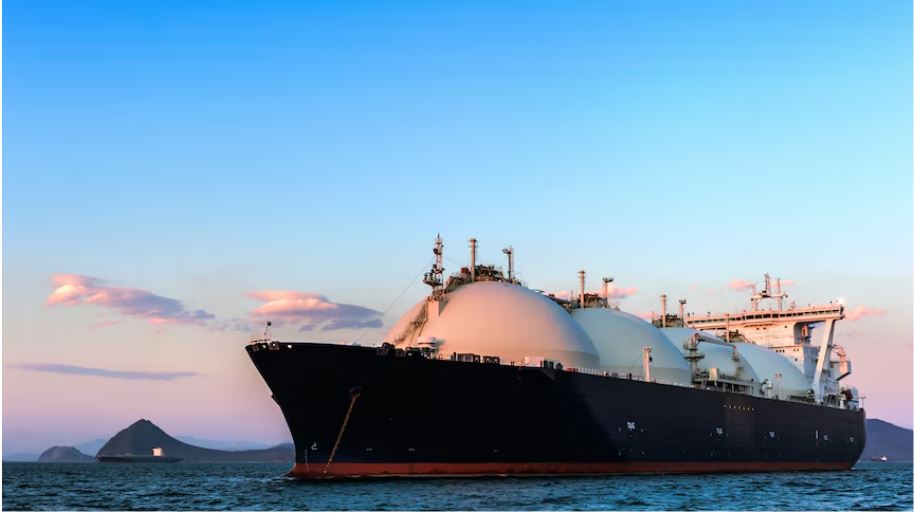
In the febrile environment of a federal election campaign, an uneasy consensus seems to have emerged between the major parties on an unlikely topic — the gas industry.
Or, more specifically, the shortcomings of the gas industry in Australia and the need to bring it to heel.
On Thursday night, as foreshadowed by the ABC’s Jacob Greber, Opposition Leader Peter Dutton said he would impose a reservation policy of sorts on east coast gas if elected prime minister.
The aim, he put it simply, was to force more gas through the domestic market and bring prices down “from over $14 per gigajoule to under $10 per gigajoule”.
“This is just the start,” Mr Dutton told parliament in his reply to this week’s budget.
But no sooner had the words left Mr Dutton’s mouth than industry experts from across the economic and political spectrum were piling on to poke holes in what they said would be a flawed and counterproductive policy.
Too little, too late
Some questioned whether the opposition leader had the gumption to stare down the gas industry.
Others accused the Coalition of hypocrisy — of attacking Federal Labor for its attempts at regulation while proposing a radical and “anti-market” intervention of its own.
For Mark Hanna, a veteran of Western Australia’s liquefied natural gas industry, the problem with Mr Dutton’s plan was more prosaic.
Mr Hanna said it was likely to be too little, too late.
“The horse has bolted,”
Mr Hanna said.
He said the time to play hardball with the likes of gas companies was before their projects were developed.
This was the scenario in which former WA premier Alan Carpenter jawboned gas firms into accepting that state’s domestic gas reservation policy in 2007, Mr Hanna said.
But he noted that the Eastern States’ gas export industry — courtesy of three huge LNG projects near Gladstone in Queensland — had already been operating for a decade.
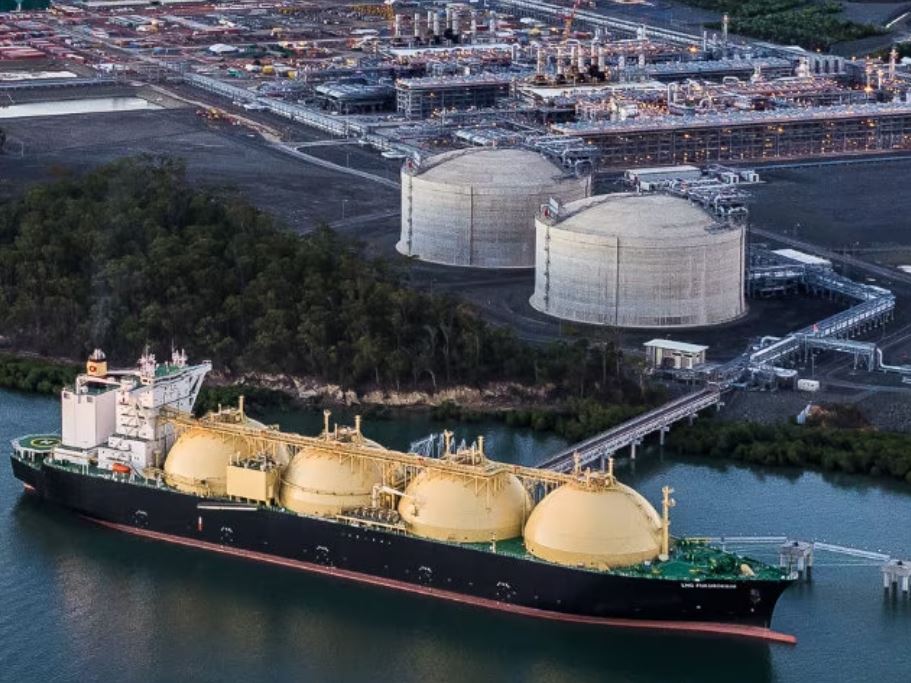
Yet, because of decisions taken by state and federal governments of both stripes, he said no reservation policy of note had ever been implemented.
Meanwhile, an eastern Australian domestic gas market that had long enjoyed prices of just a few dollars a gigajoule had been exposed to much higher international prices.
So much so, in fact, they have been trading about $15 a gigajoule for the past year.
“The government used to have a lot more leverage because all of these companies were looking to build new projects,” he said.
“And so therefore, they would come to the party and help out even if they felt they didn’t really want to.
“But because there’s no future projects, I’m not sure they’d be really bending over backwards to help.”
Changes will be ‘bitterly opposed’
Under the details of the Coalition’s policy announced so far, gas exporters on the east coast would be required to provide an extra 50 to 100 petajoules a year for the domestic market.
Local customers in eastern Australia currently use about 500 petajoules of gas a year, according to the Australian Energy Regulator.
Much more gas, however, is exported, with about 1300 petajoules sent overseas last year, most of which was tied up in long-term contracts with customers in Asia.
One petajoule of gas is equivalent to the energy used by 19,000 homes in a year.
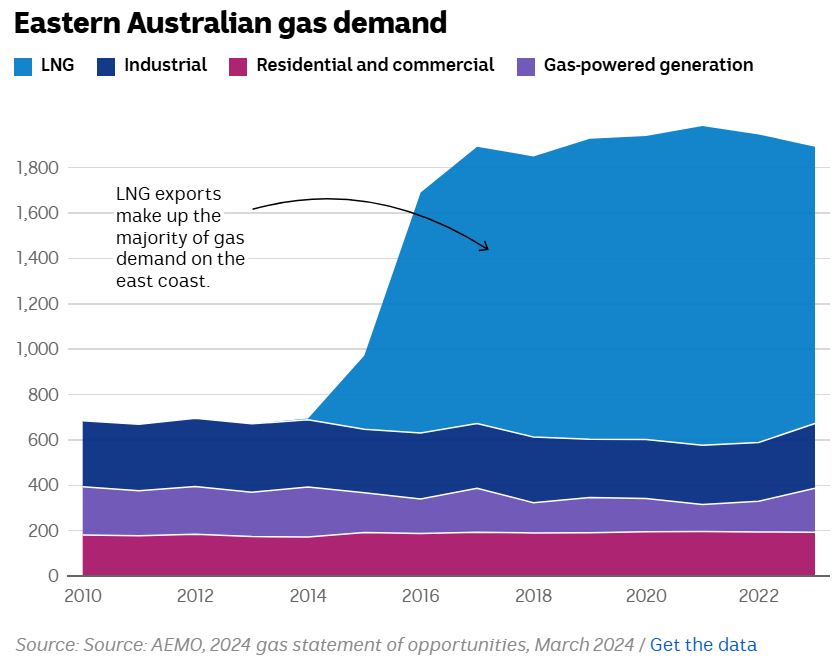
Tim Buckley, the founder and director of the public interest think tank Climate Energy Finance, said the Coalition’s plans appeared attractive in theory.
Mr Buckley said “the idea of getting” more gas to Australian consumers at a fair and reasonable price was a laudable one.
Not only would it reduce the costs to households and businesses using the fuel directly for heating, cooking, or manufacturing, he said, it would help ease power prices.
He said this was because gas still played an outsized role in setting electricity prices, noting that at least some gas was almost invariably needed to meet peaks in demand.
Despite this, Mr Buckley doubted the Coalition would have the wherewithal to ram through changes that were so obviously against the interests of the gas industry and likely to be bitterly opposed by it.
“The devil is always in the detail,” Mr Buckley told the ABC’s RN Breakfast program.
“In theory, it sounds good, but there will be a major quid pro quo.
“We know that the multinational gas cartel — and that’s what they are, they’re a cartel that’s been extracting monopoly rents from Australian consumers, gas consumers, for a decade.
“I don’t think they’re going to just give up their cartel behaviour because Peter Dutton says it.”
Lower power prices ‘years away’
Mr Buckley also said the notion — put forward by Mr Dutton — that the Coalition could quickly lower gas prices by streamlining the development of new fields was fanciful.
As part of its pitch, the opposition said it would clear the way for new gas supplies by fast-tracking approvals, defunding the Environmental Defenders Office and enforcing “use-it-or-lose-it” provisions for offshore fields.
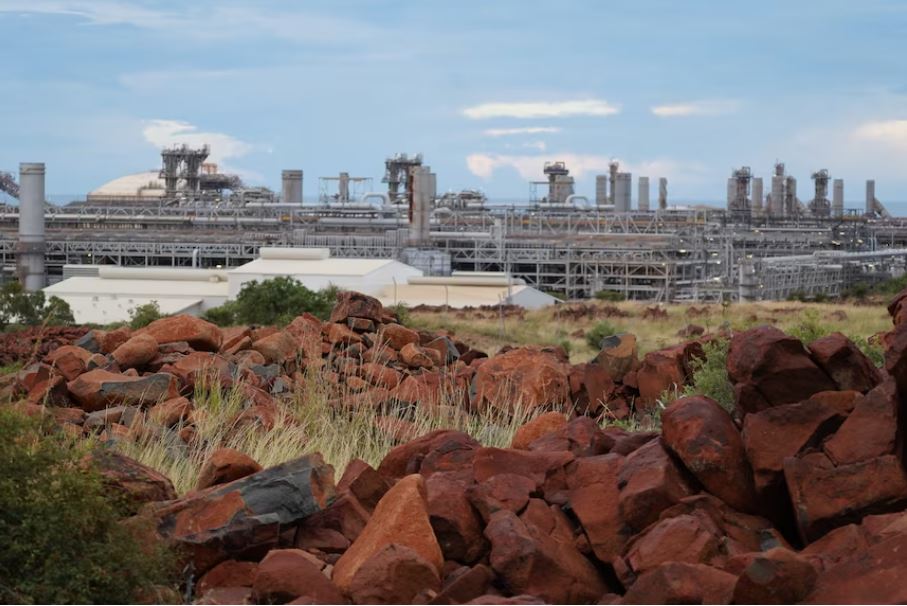
But Mr Buckley argued it was disingenuous to suggest more gas could be brought online virtually overnight.
More likely, he said, it would take years, even allowing for the Coalition’s friendlier policies.
As an example, he pointed to Santos’s troubled Narrabri project in northern New South Wales.
He said the project had been on the drawing board for more than a decade and had not been developed even though domestic gas prices had reached unprecedented heights in recent years.
“[Mr Dutton] says categorically it’s about ramping up domestic gas production,” he said.
“You don’t just ramp up domestic gas production in the space of nine months. That will take five years.”
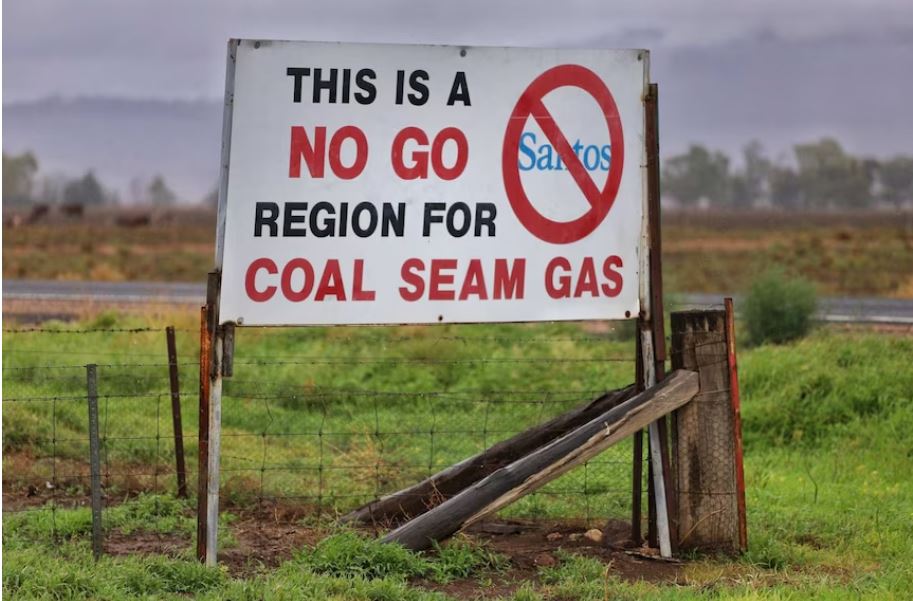
Saul Kavonic, the head of energy research at MST Marquee, was even more strident.
Mr Kavonic said the Coalition’s policy was base politics that would eventually backfire on the Liberal and National Parties, energy users and the economy as a whole.
He said that although the policy “may be popular”, at least in the short term, it was in his view bound to ultimately fail.
According to Mr Kavonic, this was because the Coalition’s position was fatally confused and conflicted.
On the one hand, he said Mr Dutton was telling the gas industry to invest.
But on the other hand, he said the opposition leader was advocating changes that would undermine or even kill the business case for many proposed gas projects.
He noted Mr Dutton had been explicit in targeting domestic gas prices that were lower than $10 a gigajoule.
“Once you say we’re effectively going to cap the price at $10, there’s a lot of supply projects that were going to come online that won’t work at $10,” Mr Kavonic said.
In a withering assessment of the plan, Mr Kavonic said: “The Coalition has proven a weak, populist hypocrite on gas.”

While equally critical of the Albanese government’s intervention in the gas market in 2022, when it tried to introduce price caps, Mr Kavonic said the measures were at least taken at a time of crisis.
But he argued the Coalition’s proposal was arguably worse given its previous criticism of Labor’s move and its seemingly calculated nature.
Ultimately, Mr Kavonic said the burden of any Coalition reservation policy would fall on just two suppliers — the Queensland Curtis LNG plant operated by Shell and the Australia Pacific project run by Origin.
He said it was those two projects that were responsible for exporting virtually all of the additional cargoes from the east coast that were not locked up in long-term contracts — a figure amounting to about 300 petajoules last year.
By contrast, he said Santos’s Gladstone LNG project would avoid the fallout — at least for a while — even though it had arguably done more than any other to hoover up spare domestic gas supplies and push up prices in recent years.
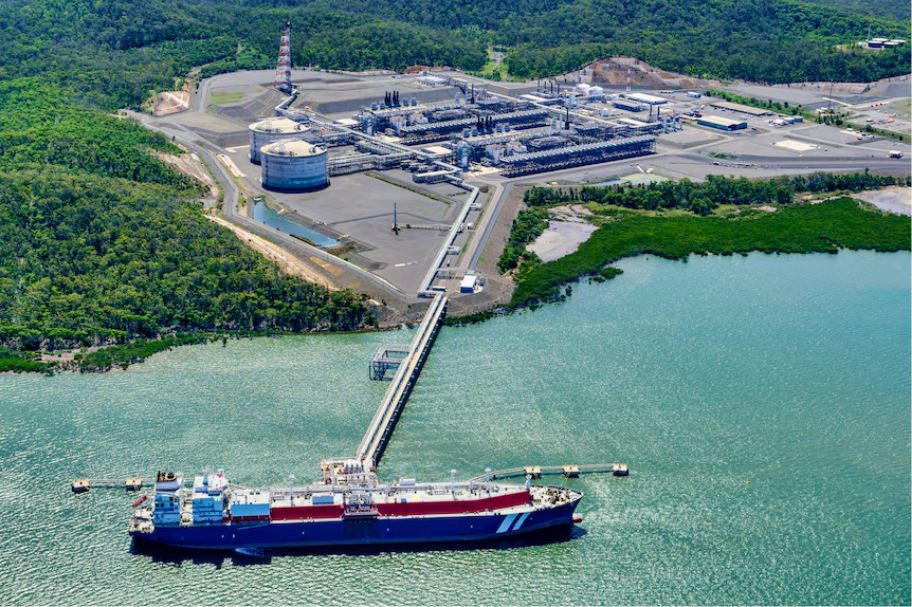
“What will happen over time is the amount of gas you need for them to divert domestically to keep the price down will increase,” he said.
“Within three to five years, there will be no volumes left beyond what’s in the foundation contracts.
“And then what happens? Then you have to break contracts.”